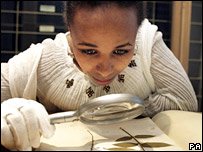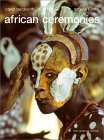Ethiopia-Eritrea border
03/03/2006
Eritrea regrets the death of the peacekeeper, but Annan's linking it with Eritrea's ban on U.N. helicopter flights is not justified and is unacceptable, said Yemani Ghebremeskel, director of Eritrea's president's office.
Eritrea rejects criticism by the U.N. secretary-general, who urged the country to lift a ban on U.N. helicopter flights in its airspace, citing the death of a peacekeeper who had to be evacuated on a longer flight to Ethiopia.
Information Minister Ali Abdu said Thursday that Kofi Annan's statement was intended to divert attention from Ethiopia's four-year refusal to let an independent commission demarcate their common border.
Eritrea regrets the death of the peacekeeper, but Annan's linking it with Eritrea's ban on U.N. helicopter flights is not justified and is unacceptable, added Yemani Ghebremeskel, the director of Eritrea's president's office. "The death of a person is regrettable, but trying to politicize it is unacceptable,'' Yemani said.
A 3,800-strong U.N. peacekeeping force has been monitoring a 1,000-kilometer (620-mile) temporary security zone between Ethiopia and Eritrea under a December 2000 peace that ended a 2 -year border war between the Horn of Africa neighbors. The peace deal also provided for an independent border commission, whose 2002 ruling has not been implemented because of Ethiopia's opposition.
Indian Lance Corporal Kamble Ramesh Annappa, who died after a heart attack, was the first U.N. peacekeeper to die since Eritrea banned U.N. helicopter flights in its airspace on Oct. 5, in frustration at the United Nations' Security Council failure to press Ethiopia to implement the border ruling.
"The secretary-general is particularly troubled that the death occurred in the circumstances when, because of the inadmissible restrictions imposed by Eritrea, the medical evacuation of the sick peacekeeper to a hospital required the use of a longer route,'' U.N. spokesman Stephane Dujarric said Thursday.
According to the U.N. mission, Ramesh Annappa suffered cardiac arrest in the early hours of Wednesday at the Indian Battalion Headquarters at Adigrat in the Ethiopian side of the buffer zone and could have been flown to the Eritrean capital, Asmara, in 45 to 50 minutes. But because of the Eritrean ban, a U.N. aircraft had to be flown from the Ethiopian capital, Addis Ababa, to the town of Mekele to evacuate him. Ramesh Annappa died soon after arriving at the hospital in Addis Ababa at 2 p.m., about 12 hours after he became ill, the U.N. mission said.
Last week, the United States, the United Nations, the European Union, the African Union and Algeria _ the five parties who witnessed and guaranteed the December 2000 truce _ called for the border commission to convene a meeting with Ethiopia and Eritrea and work out technical details on marking the border. The U.N. Security Council backed their call.
U.S. Ambassador John Bolton said Thursday a U.S. initiative aimed at settling the dispute is focused on putting together a meeting of the boundary commission in London late next week. "We have received the invitation, we are looking at the situation, but no decision has been made'' on whether Eritrea would send representatives because officials want to confirm that the meeting will not seek to alter the decision of the boundary commission, presidential aide Yemani said.
"You are dealing with a decision that has been rendered four years ago. The demarcation directions have been worked out three years ago _ all the practical details have been worked out. What is remaining now is purely implementation,'' he said. "We have a decision that is legal, technical, that is final and binding.
So, the whole concept of a diplomatic initiative would, in effect, undermine the agreement,'' he said. "The appropriate diplomatic initiative would be to persuade the party that is violating the law, a party that is reneging on its commitments to uphold the ruling.''
Eritrea would accept the U.S. initiative if it is intended to push for the implementing the decision as it stands, Yemani said. "We have sent a delegation (to the U.S.), we have had discussions, we have put forward our views ... but nobody has explained the initiative very,very clearly, nobody knows what the objectives are,'' he said.
http://www.eitb24.com/portal/eitb24/noticia/en/international-news/
ethiopia-eritrea-border-eritrea-rejects-u-n--secretary-generals-c?
itemId=D16638&cl=%2Feitb24%2Finternacional&idioma=en
 Last Updated: Wednesday, 1 March 2006, 15:09 GMT
Last Updated: Wednesday, 1 March 2006, 15:09 GMT 03/01/2006
03/01/2006 Diouf said Ethiopia was the first country to which the government of Senegal sent a messenger to invite it to participate in the third cultural festival to be held under the theme ''Renaissance of Black Africans''. The involvement of Ethiopia in the festival is essential, Diouf said.
Diouf said Ethiopia was the first country to which the government of Senegal sent a messenger to invite it to participate in the third cultural festival to be held under the theme ''Renaissance of Black Africans''. The involvement of Ethiopia in the festival is essential, Diouf said. According to Diouf, the festival which was initiated by the government of Senegal was first held in 1966 in Dakar, while the Nigerian capital Lagos hosted the second festival after a decade.
According to Diouf, the festival which was initiated by the government of Senegal was first held in 1966 in Dakar, while the Nigerian capital Lagos hosted the second festival after a decade. government for taking the initiative to host the festival and announced Ethiopia's participation.
government for taking the initiative to host the festival and announced Ethiopia's participation.